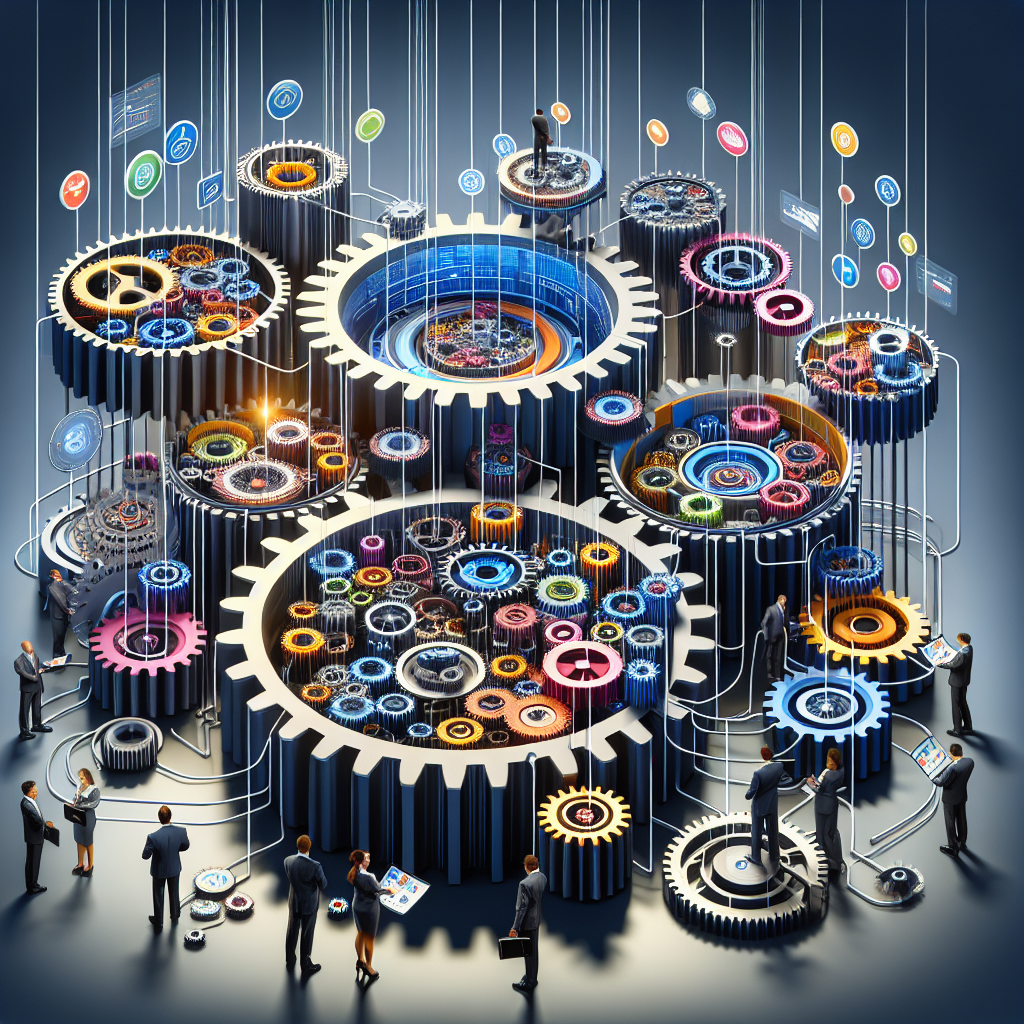Understanding CRM Systems
What is a CRM System?
So let’s kick things off with the basics: what exactly is a CRM system? CRM stands for Customer Relationship Management. In simple terms, it’s a technology that helps businesses manage their interactions and relationships with customers and potential customers. It’s like having a digital assistant that keeps track of every conversation, meeting, and transaction related to your clients. You know, the kind of stuff that can be a little overwhelming if you’re trying to keep it all in your head!
In my experience, a good CRM system allows you to store customer information, track sales, and even analyze data to better understand market trends. One of the key features I find incredibly beneficial is the centralized database. All your customer info is in one place, making it super easy to access whenever you need it. You no longer have to scramble through email chains or spreadsheets to find a piece of information!
What’s even cooler is that many CRM systems can integrate with other tools, such as email marketing and social media platforms. This means you can streamline your workflows and enhance your sales process. Trust me, once you start using a CRM effectively, you’ll wonder how you ever managed without it!
Enhancing Customer Relationships
Personalization at Scale
One of the standout features of CRM systems is how they allow for personalized interactions with clients. You know, in sales, connecting on a personal level can make all the difference. For instance, when I reach out to a client, I can pull up their history with us, see their last purchase, and even note any preferences they might have shared. This gives me a solid foundation for a genuine conversation!
With CRM, I often notice that deep understanding can lead to tailored recommendations, ultimately elevating the customer experience. Instead of sending out generic promo emails, I can craft messages specifically suited to their needs and interests. There’s nothing like receiving a message that’s truly relevant to you, right? Clients appreciate it, and it certainly helps in closing deals.
Over time, nurturing these relationships can lead to long-term loyalty. And let’s be honest – loyal customers are way more likely to spend more money with you and recommend your business to others. So not only does a CRM help manage relationships, but it actively enhances them too!
Streamlining Sales Processes
Automating Repetitive Tasks
One of the best things about CRM systems is their ability to automate mundane tasks. I can’t tell you how many hours I’ve saved by letting my CRM handle things like data entry, follow-up reminders, and even sending out email templates! By allowing the system to take care of these repetitive tasks, I can focus my energy on more important things – like actually selling.
For example, when I first started using CRM, I set up automated email sequences for different stages of the sales funnel. This meant that when a lead downloaded a resource from our site, they would automatically receive a thank you email along with additional helpful content. It not only saved me time but made the leads feel valued from the get-go.
In addition, this automation helps keep the sales pipeline moving smoothly. If a potential client shows interest but then drops off, the CRM can trigger follow-up reminders to nudge them back. It’s like having a little reminder buddy in your back pocket, helping you manage your time effectively!
Tracking and Analyzing Sales Performance
Gaining Insights from Data
Analytics is where CRM really shines in sales management. One of the features I love is the ability to see real-time reports about sales performance, which helps me gauge how we’re doing against our targets. Instead of guessing where we stand, I can dive deep into the numbers to figure out what strategies are working and what needs adjustment.
For instance, I can track metrics like conversion rates, average deal size, and sales cycle length. Whenever I look at these reports, I’m amazed at how much I can learn about our customers’ behavior and attitudes. It might surprise you, but understanding these metrics can lead to powerful insights that refine our entire sales strategy.
If something isn’t working as expected, I can pivot quickly, rather than waiting until we’re too far down the line. It’s all about being proactive rather than reactive, and a robust CRM system makes that possible. Looking back at how decisions were made before CRMs, I can’t help but think how inefficient it was!
Facilitating Collaboration Among Teams
Communication Across Departments
Sales isn’t just a one-person game; it requires collaboration across various teams within a business. That’s where the collaboration features of CRM systems come in handy. Everyone, from marketing to customer service, can access the same customer information, enabling seamless communication and reducing the risk of miscommunication.
I’ve seen firsthand how valuable it is when the marketing team knows who our hottest leads are. They can create targeted content to nurture those prospects effectively. When sales and marketing are aligned, sales efforts become more effective, and that’s a win-win for everyone involved!
Plus, with features like shared calendars and task assignments within the CRM, team members can coordinate more efficiently. I remember a time when we launched a new product, and being able to quickly assign tasks and follow up on them through the CRM made all the difference in getting everything done on time. Together, we smashed our launch goals!
Conclusion
In conclusion, CRM systems are indispensable tools for managing sales effectively. By enabling better customer relationships, streamlining processes, and offering valuable insights, they empower sales teams to perform at their best. Implementing a solid CRM system isn’t just a tech upgrade; it’s a strategic move that can lead to significant growth and success. If you haven’t jumped on the CRM bandwagon yet, I can’t recommend it enough!
Frequently Asked Questions
1. What are the main benefits of using a CRM system?
The primary benefits include improved customer relationship management, streamlined sales processes, enhanced communication among teams, and valuable insights from data analytics. Overall, it helps optimize sales strategies and fosters customer loyalty.
2. How does a CRM help in personalizing customer interactions?
A CRM gathers and organizes customer information, allowing sales reps to tailor their communications based on preferences and past interactions. This leads to more relevant and respectful engagement with clients.
3. Can CRM systems automate tasks? If so, how?
Absolutely! CRM systems can automate many repetitive tasks, such as follow-up emails, scheduling reminders, and data entry. This minimizes manual work, allowing sales professionals to focus on closing deals.
4. How can I measure sales performance with CRM?
CRM systems typically offer reporting and analytics features. You can track metrics like conversion rates, sales cycle lengths, and customer acquisition costs, enabling data-driven decision-making.
5. Is CRM suitable for small businesses? Why or why not?
Yes! Many CRM systems cater specifically to small businesses by offering scalable solutions. They help small teams manage customer interactions more effectively, which can greatly enhance operational efficiency and growth potential.



